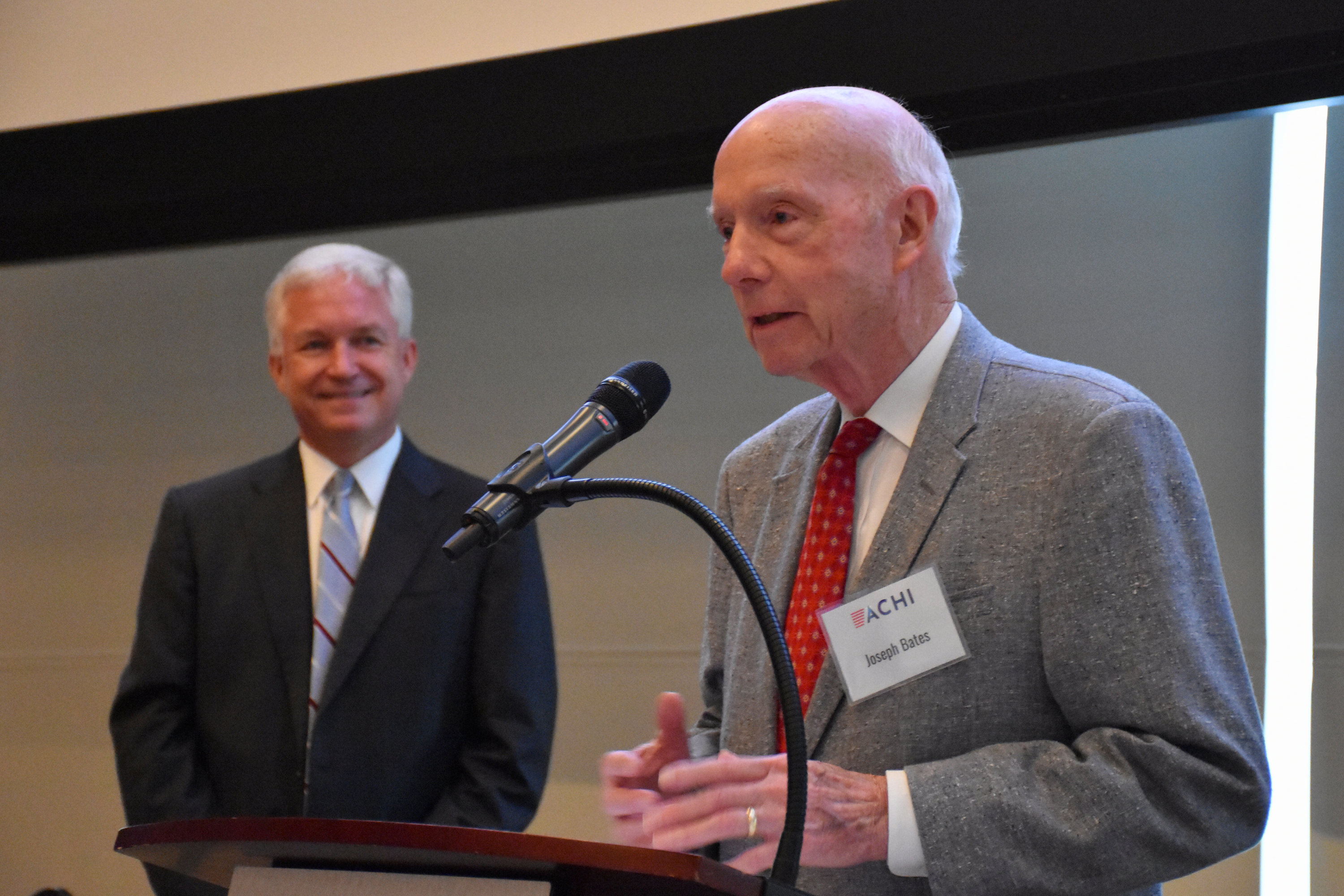
Author
Joshua Cook
Assistant Director of External Relations
Contact
ACHI Communications
501-526-2244
jlyon@achi.net
For much of the past 70 years, Dr. Joe Bates worked tirelessly to ensure that everyone across Arkansas could benefit from equal access to quality health care. Whether mentoring medical students, conducting vital public health research, or bringing people together to build a stronger, more professional, and more effective healthcare infrastructure for the state, Dr. Bates was a true pioneer for public health in Arkansas.
“It is hard to fathom the number of lives his work has saved here in our state and beyond,” said ACHI President and CEO Dr. Joe Thompson. “His legacy will have an enduring impact on the lives of Arkansans for many generations to come.”
Revolutionizing the Diagnosis and Treatment of Tuberculosis
During the 1950s and 1960s, Arkansas frequently experienced the highest death rate from tuberculosis (TB) in the country. During his childhood, Bates lost an uncle not much older than himself to the disease; he credited his lifelong interest in combating infectious disease to that loss.
As a resident following his graduation from the University of Arkansas for Medical Sciences (UAMS), Bates encountered a 14-year-old boy from the Arkansas Boys’ Reformatory School who came into the hospital coughing up blood. Following the boy’s TB diagnosis, Bates began to further investigate conditions at the reformatory school, where tuberculosis was running rampant.

Medical belief at that time held that TB was transmitted through close contact, but Bates’ investigation and research at the reformatory school proved that the disease was spread through airborne particles. He and his colleagues also went on to prove that the particles could be destroyed to prevent transmission. “The particle is very susceptible to antibiotics so that you could eradicate these tiny particles, as far as infectiousness is concerned, in two weeks of treatment,” recalled Bates in an interview in conjunction with his Dr. Tom Bruce Arkansas Health Impact Award in 2016. This was a revolutionary discovery, because at the time it was common practice to isolate patients for months or even years at a sanitorium. Bates’ work transformed both the diagnosis and treatment of tuberculosis.
“There are few medical professionals whose life’s work transcends their individual sphere of influence to positively impact society as a whole, but Dr. Bates is one of those people,” said Thompson.
Building a Foundation for the Future of Public Health in Arkansas
In a career that included service at UAMS, the Little Rock Veterans Administration Medical Center, Arkansas Department of Health, and the Fay Boozman College of Public Health — which he played a key role in creating — Bates consistently worked to bring people together for the good of Arkansans. He strived to elevate professionalism across the state’s public health and healthcare institutions, including efforts to expand the number of Arkansas Department of Health employees with specific public health training.
Bates continued to mentor medical students throughout his career and was instrumental in the recruitment of noted physicians, researchers, and educators to Arkansas. One of those individuals was ACHI founding director Dr. G. Richard Smith, with whom Bates worked to establish the Arkansas Center for Health Improvement in 1998. Bates was integral to bringing the right people to the table and encouraged engagement with policymakers so data and evidence-based research could drive improvements in the health of all Arkansans, not only in his lifetime but for decades to come.






